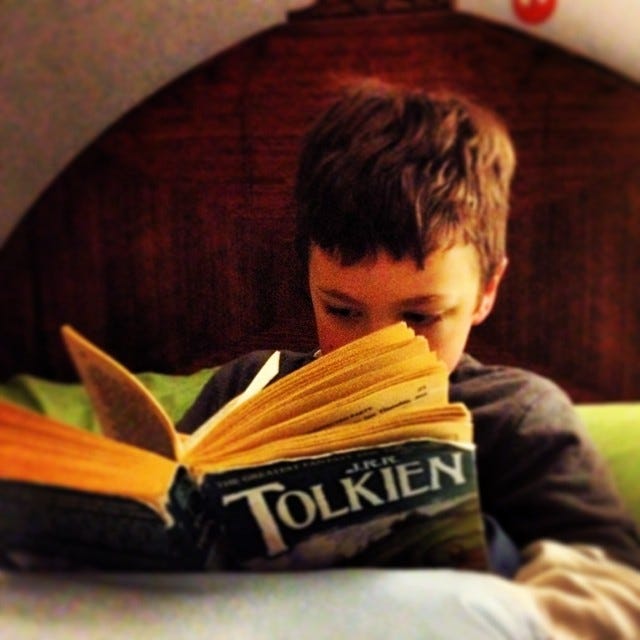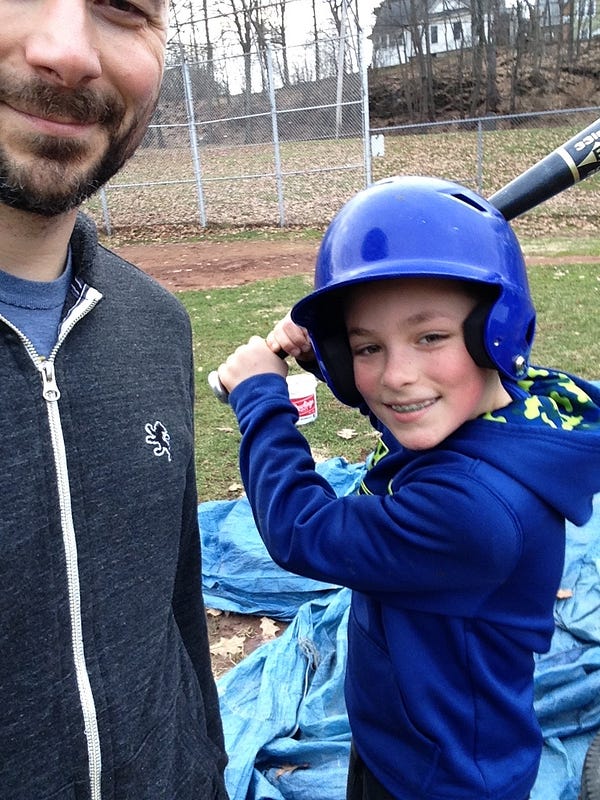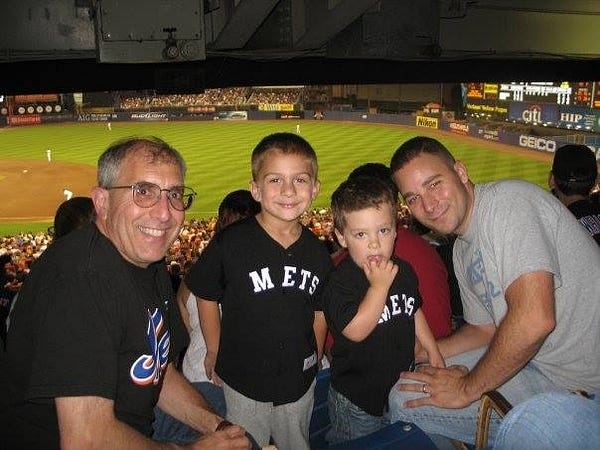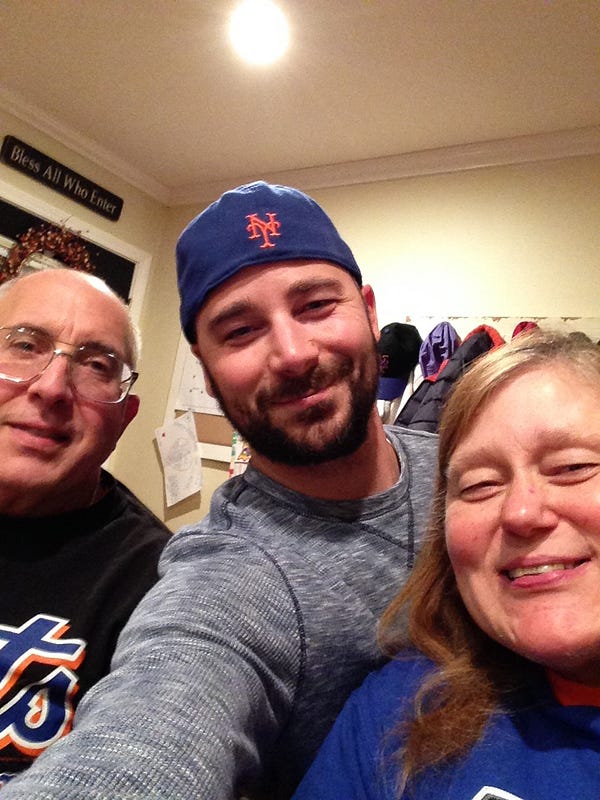I’ll be honest. I have a love-hate relationship with sports. Some of the most thrilling moments of my life have come while watching sports. Professional sports, collegiate sports and even my kids’ youth sporting events. Conversely, as a lifelong fan of the Buffalo Bills and the New York Mets I have found myself in anguish more often than most American sports fans I suspect.
Of course, as a kid I had some on the field triumphs and a whole lot of failures, but these are not the reason I don’t know what to make of my relationship with sports. Nor is the fact that I passed on physiques to my offspring more suitable to getting their nerd on with authority than playing D1 athletics (don’t tell my son).
I just don’t know if sports are worth it. I guess maybe a statement like that requires some explanation. Time is limited, life is short, and opportunity costs are high, especially for a father of four, now in middle age who still daydreams about a writing career and would like to finish the stack of books on my nightstand before my wife’s next “Goodwill sweep.” What am I (or any of us) sacrificing by spending time parked in front of the tube watching other men shoot baskets or hit baseballs? What do we gain?
One thing I know is that I still root for my teams, especially since my kids developed the same (painful) commitment to the Mets I had at their age, but I am no longer a fanatic like I was at age 12.
I’d be lying if I said I wasn’t at least a little sad about that. To believe that sports are meaningful, to fully commit to the idea, the wonderful illusion, for a minute or an evening or maybe a whole damn summer, that your team’s triumph will measurably improve your life is, well, more than a little silly, but also kind of a beautiful expression of our fragile humanity, that tragic yearning for the final lasting satisfaction we never get to find. It is the same kind of giving over to unreality as takes place at the movies, or in the pages of a novel you can’t put down, but one that is all the more thrilling and uplifting because the outcome is not guaranteed, the “good guys” don’t always win. It is a willful suspension of logic and reason that allows us to get swept away by something meaningful (at least temporarily), something bigger than ourselves.
Still, I can’t help thinking about the dangerous solemnity with which or society views the sports-entertainment complex, which alarmingly now includes collegiate and even high school sports. How many intellectual pursuits are shunned in the interest of watching the big game? How many kids are training for the athletic scholarship at younger and younger ages, their parents shelling out thousands of dollars to for-profit travel teams, while their reading, writing and thinking abilities atrophy?
There’s a good argument that organized athletics instill the kind of discipline and resilience necessary to tackle an academically rigorous path. But even for the kids you can get on that path to dual citizenship in nerdland and jocksville, I see too many in my classroom who are merely using challenging classes as a means to an end, finding too little value in actually learning. And it breaks my heart a little bit. No one tailgates in front of and scalps tickets to the big lecture anyone. Somewhere Emerson is crying.

On the other hand, Walt Whitman was in love with baseball. The notion of being either a nerd or a jock is a false one. Still, let’s be honest, people who excel in one area are all too quick, and perhaps partially justified to shun the other. Even the most know-it-all pedantic can benefit from the values of teamwork and sportsmanship that are, at least in theory, so central to athletics. Not to mention the exercise. To find “flow” on a sports field, a kind of mindful focus that catapults the athlete into a seemingly nonmaterial realm of perfected human action, is something that the bookworms cannot derive from even the most flawless prose. But that kind of thing is unlikely to happen to the boy or girl picked last in gym class, so why wouldn’t she devote her energy elsewhere.
Conversely, for those with athletic prowess, men and women who have doors opened because of physical abilities well above their cohort, who are lured with the shiny bait of scholarships or even greater financial rewards, it has got to be difficult to study 18th century German philosophy with any sense of urgency or much sincere interest.
Still, I imagine it would be helpful for individuals and society as whole to crack a few holes in the false dichotomy, or at least recognize to what extent it is a figment. A fairly brilliant colleague of mine talks about “sports nerds,” the type of people who would never dream of playing Dungeons and Dragons and probably beat (still beat) those kind of people up in high school, but relish carrying on 45 minute discourses on wide receiver YAC or a short stop’s RAR without the slightest recognition of the fact that there is really no difference between themselves and non-sports “nerds” who do geeky shit like find science interesting.


I’m not trying to give advice. To anyone. Me pretending to offer some sort of comprehensive analysis of what exact role sports should play in our lives would be at least a little like letting Rob Gronkowski run an SAT prep course. I’m just trying to figure out my own life and get people to think about theirs.
Ultimately I have and will continue to watch sports and encourage my own children to participate in them. The deciding factor for me is simple –
Sports are a multigenerational phenomenon. I don’t listen to the same music as my mother, or vote for the same candidates as father and I seem to understand less and less of what the preteens who live in my house are saying. But my mother loves her Mets every bit as much as her grandson, and as an extended family that grew up in Buffalo, we all care about what happens to the Bills each week, because we know what it means to the people of that old Rust Belt city and the last four or five times I’ve been on the road with my dad, we were on the way to…you guessed it…sporting events with several of his grandchildren in the back seat.
And it is on these long rides, or sitting having a cold beverage at the local ball park that we do find common ground, and a renewed sense of being part of something meaningful.


Comments
Post a Comment